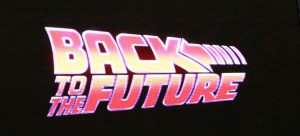The United States Senate will vote on another economic relief bill on Wednesday, but it does not include a direct stimulus check. The new bill comes from Senate Majority Leader Mitch McConnell and is another attempt to split the relief package into smaller parts. The chances of passing this bill are slim, but even if they make it, Americans will not get a stimulus check.
McConnell’s new bill costs $500 billion and includes funding for just a few major programs in the stimulus package — the Paycheck Protection Program (PPP), unemployment insurance, school safety, vaccines and coronavirus testing, according to a report by Newsweek. Democrats in the U.S. House of Representatives already shot down a very similar bill, arguing that Republicans were trying to split up the stimulus package to provide less aid overall, and that one cohesive package was their best bargaining chip. Some political analysts believe that this is a symbolic move by McConnell, in another attempt to portray Democrats as “the bad guys” in this negotiation.
Videos by PopCulture.com
“Working families have spent months waiting for Speaker [Nancy] Pelosi’s Marie Antoinette act to stop,” McConnell said in a statement on Saturday. “This is half a trillion dollars of good that Congress can do right now.” He added that this bill was not meant to solve “every problem forever,” but it could offer “huge amounts” of help to Americans in need.
While the vote is not what Democrats hoped for, it is an abrupt change of direction for McConnell, who has recently hinted that he will not pass any stimulus measures until after the 2020 presidential election. A report by NBC News speculates that McConnell and other Republicans are suddenly taking the coronavirus more seriously as they see how important it is to voters in states that are key to them — particularly the midwest, where COVID-19 has hit hard.
Still, McConnell has proven less flexible than the White House, where President Donald Trump has raised his overall price for the stimulus package as high as $1.8 trillion. This is still short of Democrats’ $2.2 trillion asking price, but it is much closer than McConnell’s firm price limit of $1 trillion.
Regardless, analysts all along the political spectrum say that McConnell’s bill is almost certain to fail on Wednesday, and the prospect of more economic aid is growing slimmer and slimmer. The vote is scheduled for Wednesday, Oct. 21.








